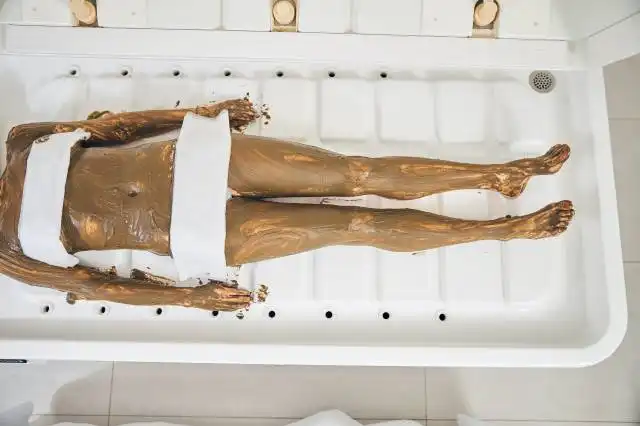Start a Dental Office
Becoming the Architect of Radiant Smiles: The Magic of Owning a Dental Office
| Updated


DENTAL OFFICE
Absolutely every smile tells a fascinating story, and as the owner of a Dental Office, you'd be the narrator of those tales. Through establishing a Dental Office business, your main services would involve providing preventative and corrective oral care to your clients, ensuring they continue to charm the world with their gleaming smiles. Remember, life is a lot brighter from behind a radiant and healthy smile, so relish the opportunity to be the architect of such smiles.
Jump to Business Plan
RELATED BUSINESS IDEAS
Browse ALL Health & Beauty Innovations Business Ideas
Discover Your Perfect Domain
Unlock the door to your online success with our hand-picked selection of premium domain names. Whether you're starting a new venture or rebranding an existing one, the right domain can set the tone for your digital presence. Browse through our curated list, each with its unique potential to enhance your brand's visibility and credibility.
DENTAL OFFICE MINI BUSINESS PLAN
This a quick reality check to help you identify the strengths and weaknesses of your business concept before you dive in.
Expected Percent Margin:
- Gross Margin: 70-75%
- Net Profit Margin: 25-35%
Earnings Expectations:
- Daily Earnings: $1,200 - $3,000
- Weekly Earnings: $6,000 - $15,000
- Monthly Earnings: $24,000 - $60,000
- Annual Earnings: $288,000 - $720,000
Actions to Hit Those Numbers:
Office Setup:
- Initial Investment: At least $500,000 - $1,000,000 (involving office space, dental equipment, and software).
Marketing and Patient Acquisition:
- Social Media & SEO: Regularly update your website and maintain a strong presence on social media. Invest in search engine optimization (SEO) to generate organic web traffic.
- Local Advertising: Allocate at least $1,000 per month for targeted local advertisements.
Service Quality and Patient Experience:
- Staffing: Employ skillful dental professionals and empathetic receptionists to provide excellent patient experience.
- Services: Diversify your services to include orthodontics, pediatrics, and cosmetic dentistry, among others, which may bring in more revenues.
Cost Control:
- Rent: Skip avoidable costs like high-rent locations if possible.
- Business Insurance: Protect your investment with an appropriate insurance plan.
Business Operations:
- Open Hours: Operate at least 5 days a week, 8-10 hours a day.
- Patient Volume: Aim for 10-20 patients per day, with services ranging in cost from $100-$1,000 depending on the complexity and procedure.
Remember, these are approximate estimations that can change according to the location, type of dental services provided, number of doctors in the office, economic conditions, and various other factors.
NOT WHAT YOU HAD IN MIND? Here are more ideas



Browse ALL Health & Beauty Innovations Business Ideas
Grab Your Business Website Name
Before you get caught up in the whirlwind of setting up your business, invest in a domain name. It's a small but significant step that lays the foundation for your brand and makes it easier for customers to find and trust you. Just like you wouldn't build a house without securing the land first, don't build a business without securing your domain name.
"Why? Can't that wait?" Here's why it shouldn't
Step 1: Determine if Starting a Dental Office is the Right Endeavor
Breakdown of Startup Expenses
Before starting a dental office, it is important to understand the costs associated with the endeavor. Startup expenses can include the cost of purchasing or leasing a building, purchasing equipment, hiring staff, and obtaining the necessary licenses and permits. It is important to research the costs of each of these items in the area where the office will be located. Additionally, it is important to consider the cost of marketing and advertising, as well as the cost of insurance.
Breakdown of Ongoing Expenses
After the initial startup costs, there are ongoing expenses associated with running a dental office. These expenses can include rent or mortgage payments, utilities, payroll, insurance, and supplies. Additionally, it is important to factor in the cost of marketing and advertising, as well as the cost of professional services such as accounting and legal services.
Examples of Ways to Make Money
There are a variety of ways to make money with a dental office. These can include providing services such as cleanings, fillings, and other dental procedures. Additionally, it is possible to make money through the sale of products such as toothpaste, toothbrushes, and other dental-related items. It is also possible to make money through the sale of services such as teeth whitening, orthodontics, and other specialized services. Finally, it is possible to make money through the sale of gift certificates and other promotional items.
Step 2: Naming the Business
When choosing a name for your dental office, it is important to consider the type of services you will be offering, the location of your business, and the target audience. Additionally, you should make sure the name is easy to remember and spell. It should also be unique and catchy, so that it stands out from other businesses in the same field. Furthermore, you should make sure the name is available to use as a domain name and social media handle. To ensure this, you should research the availability of the name on popular search engines and social media platforms. Additionally, you should check with the local government to make sure the name is not already taken. Finally, you should also consider the potential for trademarking the name.
Step 3: Obtain Licenses and Permits
In order to open a dental office, it is important to obtain the necessary licenses and permits. Depending on the state, the licenses and permits required may vary. Generally, a dental office will need to obtain a business license, a dental license, and any other necessary permits. The business license will allow the business to legally operate in the state, while the dental license will allow the dentist to practice dentistry. Additionally, the business may need to obtain permits for any medical equipment they plan to use. It is important to research the specific licenses and permits required in the state where the business will be located.
Applying for Licenses and Permits
Once the necessary licenses and permits have been identified, the business will need to apply for them. This process can be time consuming and may require a fee. The business should contact the appropriate state or local government agency to determine the specific application process. Additionally, the business may need to provide proof of insurance, proof of identity, and other documents to complete the application process. Once all the necessary documents have been submitted, the business will need to wait for the licenses and permits to be approved.
Maintaining Licenses and Permits
Once the licenses and permits have been obtained, the business will need to make sure they are kept up to date. This may require the business to renew the licenses and permits periodically. Additionally, the business may need to submit additional documents or fees to maintain the licenses and permits. It is important to stay up to date on the renewal process and to make sure the licenses and permits are current. Failure to do so could result in fines or other penalties.
Step 4: Choose a Location
When choosing a location for a dental office, there are several factors to consider. First, the location should be easily accessible to patients, with ample parking and good public transportation options. It should also be in a safe area, with good visibility and signage. Additionally, the location should be in an area with a good population density, so that there are enough potential patients to support the business. It should also be in an area with a good mix of residential and commercial properties, so that the business can benefit from the local foot traffic. Finally, the location should be in an area with a good mix of other dental offices, so that the business can benefit from referrals and word-of-mouth advertising.
Finding the Right Location
Finding the right location for a dental office can be a difficult task. It is important to research the local area thoroughly, and to speak to local business owners and residents to get a better understanding of the local market. Additionally, it is important to consider the local zoning laws, to make sure that the proposed location is suitable for a dental office. It is also important to consider the local competition, and to determine if the proposed location is in an area that is already saturated with dental offices. Finally, it is important to consider the cost of renting or buying the proposed location, and to make sure that it fits within the budget of the business.
Step 5: Hire Employees
Types of Employees Needed
When starting a dental office, it is important to consider the types of employees that will be needed. Generally, a dental office will need a dentist, dental hygienists, dental assistants, and administrative staff. The dentist is responsible for providing dental care to patients, while the dental hygienists and assistants provide support to the dentist. The administrative staff is responsible for scheduling appointments, billing, and other administrative tasks.
Tips on Hiring Employees
When hiring employees, it is important to look for individuals who are qualified, experienced, and have a good attitude. It is also important to conduct background checks and verify credentials. Additionally, it is important to create a job description that outlines the duties and responsibilities of the position. This will help to ensure that the right person is hired for the job. Furthermore, it is important to provide competitive salaries and benefits to attract the best candidates. Finally, it is important to create a positive work environment to ensure that employees are motivated and productive.
Step 6: Purchase Equipment
When starting a dental office, there are a few pieces of equipment that are essential for providing dental services. This includes a dental chair, a dental light, a dental delivery system, a dental x-ray machine, a dental autoclave, and other necessary items. Depending on the type of services you plan to offer, you may also need to purchase additional equipment such as a dental microscope, a dental laser, or a dental imaging system.
Where to Buy
When purchasing equipment for your dental office, it is important to research the best place to buy. You can purchase new or used equipment from a variety of sources, including dental supply companies, online retailers, and even second-hand stores. It is important to compare prices and read reviews to ensure you are getting the best deal. Additionally, you should look into any warranties or guarantees that come with the equipment to ensure that you are covered in case of any malfunctions or defects.
Financing Options
When starting a dental office, it is important to consider financing options for purchasing equipment. Many dental supply companies offer financing options, such as leasing or installment plans, that can help make the purchase more affordable. Additionally, you may be able to take out a loan from a bank or other financial institution to cover the cost of the equipment.
Insurance Coverage
When purchasing equipment for your dental office, it is important to consider insurance coverage. Many dental supply companies offer insurance plans that can help cover the cost of repairs or replacements in case of any malfunctions or defects. Additionally, you may be able to get insurance coverage through your business insurance policy.
Step 7: Market the Business
Once the business is up and running, it is important to market the business to potential customers. There are a variety of ways to market a dental office, including traditional methods such as print ads, radio, and television, as well as digital methods such as social media, email campaigns, and search engine optimization. It is important to create a comprehensive marketing plan that includes all of these methods. Additionally, it is important to create a budget for marketing and stick to it.
Networking
Networking is an important part of marketing a business. It is important to attend local events and meetings, and to join local business organizations. Additionally, it is important to build relationships with other dental offices in the area, as well as with local doctors and other healthcare professionals. This will help to build a referral network and will help to spread the word about the business.
Promotions
Promotions are a great way to get the word out about the business. Offering discounts, free services, or other incentives can be a great way to attract new customers. Additionally, offering referral bonuses or discounts for repeat customers can help to encourage loyalty.
Online Presence
Having an online presence is essential for any business, and a dental office is no exception. It is important to create a website that is easy to navigate and provides information about the services offered. Additionally, it is important to create social media accounts and to post regularly. This will help to spread the word about the business and will help to attract new customers.
Step 8: Set Up Accounting System
When setting up an accounting system for a dental office, there are several options to consider. A business owner can choose to use a manual system, a computerized system, or a combination of both. Manual systems involve keeping track of financial information with paper and pencil, while computerized systems involve using software to track financial information.
Benefits of Accounting Systems
Having an accounting system in place is important for any business, as it allows for accurate tracking of income and expenses. It also helps to ensure that taxes are paid on time and that all financial records are kept up to date. Additionally, an accounting system can help to identify areas where the business can save money, as well as areas where it can increase its profits.
Setting Up an Accounting System
When setting up an accounting system, it is important to choose the right software or system for the business. There are many different options available, so it is important to do research and find the one that best meets the needs of the business. Additionally, it is important to make sure that the system is set up correctly, as incorrect setup can lead to inaccurate financial records.
Hiring an Accountant
For those who are not familiar with accounting systems, it may be beneficial to hire an accountant to help set up the system and to ensure that all financial records are accurate. An accountant can also provide advice on how to best manage the business’s finances and can help to identify areas where the business can save money.
Step 9: Open the Doors
Opening the doors of a dental office is a momentous occasion. It is the culmination of months of hard work and preparation. To ensure a successful opening, there are a few tips to keep in mind. First, make sure to have a grand opening event. This will help to draw in customers and create a buzz about the new business. Second, make sure to have a website and social media presence. This will help to spread the word about the business and make it easier for customers to find. Third, create a marketing plan. This will help to ensure that the business is reaching its target audience and that the right message is being sent. Finally, make sure to have a plan for customer service. This will help to ensure that customers have a positive experience with the business and will help to create a loyal customer base.
Step 1: Determine if the Business is Right Endeavor
Breakdown of Startup Expenses
Before starting a dental office, it is important to determine if it is the right endeavor. This should include a breakdown of startup expenses. These expenses can include the cost of renting or purchasing a space, the cost of equipment, the cost of hiring staff, the cost of marketing and advertising, and the cost of any necessary licenses or permits. It is important to be aware of all of these expenses before starting the business to ensure that it is financially feasible.
Breakdown of Ongoing Expenses
In addition to startup expenses, it is important to be aware of ongoing expenses. These can include the cost of rent or mortgage payments, the cost of supplies, the cost of staff salaries, the cost of marketing and advertising, and the cost of any necessary licenses or permits. It is important to be aware of all of these expenses before starting the business to ensure that it is financially feasible.
Examples on Ways to Make Money
When starting a dental office, it is important to be aware of ways to make money. This can include charging for services, offering discounts for certain services, offering payment plans, and accepting insurance. It is important to research the local market and determine what services are in demand and what pricing is competitive. This will help to ensure that the business is making money and is able to sustain itself.
EXPLORE MORE CATEGORIES
Browse ALL Business Idea Categories
TAKE THE NEXT STEPS










